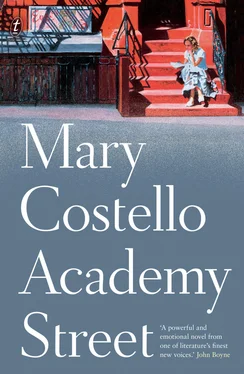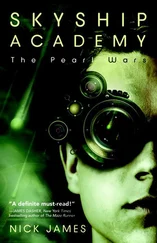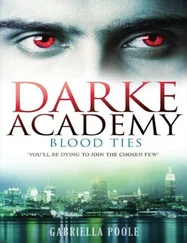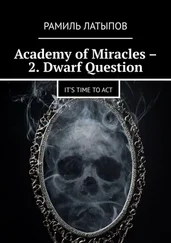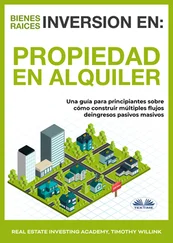Mary Costello - Academy Street
Здесь есть возможность читать онлайн «Mary Costello - Academy Street» весь текст электронной книги совершенно бесплатно (целиком полную версию без сокращений). В некоторых случаях можно слушать аудио, скачать через торрент в формате fb2 и присутствует краткое содержание. Год выпуска: 2014, Издательство: Text Publishing Company, Жанр: Современная проза, на английском языке. Описание произведения, (предисловие) а так же отзывы посетителей доступны на портале библиотеки ЛибКат.
- Название:Academy Street
- Автор:
- Издательство:Text Publishing Company
- Жанр:
- Год:2014
- ISBN:нет данных
- Рейтинг книги:3 / 5. Голосов: 1
-
Избранное:Добавить в избранное
- Отзывы:
-
Ваша оценка:
- 60
- 1
- 2
- 3
- 4
- 5
Academy Street: краткое содержание, описание и аннотация
Предлагаем к чтению аннотацию, описание, краткое содержание или предисловие (зависит от того, что написал сам автор книги «Academy Street»). Если вы не нашли необходимую информацию о книге — напишите в комментариях, мы постараемся отыскать её.
J.M. Coetzee
Academy Street This is an intimate story about unexpected gifts and unbearable losses, and the perpetual ache for belonging. It is exquisitely written and profoundly moving.
Academy Street — читать онлайн бесплатно полную книгу (весь текст) целиком
Ниже представлен текст книги, разбитый по страницам. Система сохранения места последней прочитанной страницы, позволяет с удобством читать онлайн бесплатно книгу «Academy Street», без необходимости каждый раз заново искать на чём Вы остановились. Поставьте закладку, и сможете в любой момент перейти на страницу, на которой закончили чтение.
Интервал:
Закладка:
Theo grew strong and healthy. He was almost too beautiful. With this thought came a vague feeling of premonition, a presentiment. When he was two and a half Willa stood him against her kitchen wall one day and measured him. ‘Two foot one,’ she announced. ‘He’ll be triple that, you know — six foot three when he’s fully grown.’ She winked. ‘Tall daddy, huh, Tess?’
The next day she wrote three letters to Ireland, warm, factual, unapologetic, and enclosed a photograph of Theo in each. She did not mention his paternity. She received no reply from Denis and those from Evelyn and Maeve, while expressing mild congratulations in the final lines, were brief and wary and distant. They stopped short of condemnation, and Tess knew that this was merely because her morally compromised life was sufficiently removed from theirs so as not to incur shame. Her heart sank reading the letters, but as the days passed and she remembered the country she had left behind, and placed herself in her sisters’ shoes, she understood, and forgave. On the subway one evening she contemplated an alternative life back there. A pall grew, a feeling of ennui , at the thought of the daily mundane, the restraint, the stasis. The feeling of things closing off, closing down. She could never have kept Theo. It seemed to her now to be a place without dreams, or where dreaming was prohibited. Here, life could be lived at a higher, truer pitch. Though her own was a timid life, there was, since Theo’s birth, a yearning towards motion and spirit and vitality. As she walked along the Manhattan streets she felt a sudden elation. She started to see possibilities everywhere, and it was this feeling of possibility — even if she did not always avail herself of it — this vibrancy and passion that were essential to life. Perhaps that was the very source of her anxiety, she thought, the mark of all anxiety: the acute awareness of the endless possibilities that can simultaneously imperil and enhance us, and all that might be lost or gained. And the terrible tension that exists when everything hangs on a moment, that moment when one may take a leap of faith, or not. It is choice, then, she thought, freedom of choice, that is the cause of all anxiety.
When she was on night duty Theo slept at Willa’s and, in turn, Tess had Willa’s two boys sleep over occasionally, a small black face waking up on either side of Theo, like brothers. Theo went to the playground with them, played on the landing, ran up and down the stairs with them and the Gallagher and O’Dowd kids. And yet a deep solitariness attached to him. She watched the way his eyes followed a moving ball, a Frisbee, a dog running up to him in the park. She saw him pause between thought and action, faltering on the brink of speech, his face solemn. She watched him endlessly, alert to the moment when he became aware of his own separateness. At those times it seemed to her that he had been inevitable. He had always been deemed. The surprise was that it was to her he was born. Succubus. Incubus .
On dark winter mornings he came into her room and lay sleepily across her body, their heartbeats intersecting across skin and bone and cloth. She rose and dressed in the dark and made breakfast before waking him. They sat at the kitchen table as the sky lightened or snow fell soundlessly, eerily, outside and he sat, rapt, reflected in its strange white light.
She told him about Easterfield. She led him through the rooms. She saw again every table, every chair and bed and sideboard, just as it had been. A pink eiderdown on a bed. A grey coat on the back of Mike Connolly’s door. The view out over fields through a pane of old wavy glass. The scent of apples, chicken-meal soaking in the back-kitchen, her father calling for his tea. She had no photographs for him. One morning she drew a picture: the avenue, the trees, the gravel courtyard. Her hand hovered over the page, not knowing how to come at the house. So she drew the laurel tree. Later, in Willa’s apartment, he added a house, birds, Captain. She had a vision of him there, running down the stairs with Evelyn’s and Maeve’s kids, rushing to strike the gong in the front hall, then opening the door, tumbling onto the gravel and racing towards the orchard, or out into the fields.
One morning at work she stood with the medical team at the bedside of an elderly man. She was struck by a sense of something familiar in the old man’s face. When the doctors moved along to the next patient she moved too, and then, feeling something, glanced back. He was staring at her. All morning long she was troubled. In the afternoon she went to take his blood pressure.
‘How is the boy?’ he asked.
Her heart jumped. ‘He’s well, thank you.’ She could not look at him.
She rolled up his pyjama sleeve. As she pumped the cuff their eyes met.
‘Does Theodore see his father? Every boy needs a father.’
She did not reply. As she walked away rage at his audacity flared in her.
The next morning he was mute. His name was Boris. He did not register her presence. She took his pulse, his blood pressure, measured his urine output. After breakfast, with the help of a nursing assistant, she washed him. She sponged the wasted muscles of his arms, his thighs, his buttocks. He was silent and compliant, almost meek. She lifted each hand, turned it over, saw the veins, blue, through the skin. She remembered his story on the park bench. She brought the sponge to his chest, over the sparse white hairs, the ribcage. She was aware of his heart, beating rapidly, like a trapped sparrow. She washed him all over, and dried him gently with a towel. The clock on the wall struck twelve. She fixed his bed, puffed up his pillows. She felt a great calm, a composure, in every act. Then she stood still. Down the corridor the lunch trolleys rattled. A nurse went by, pushing a patient in a wheelchair. She looked around the ward — at the chair by the wall, the sink in the corner, the man in the bed, people passing in the corridor. It is this, all of these things, she thought, that confer reality. All at once she felt grounded, compatible with the world and the presence of things in it.
When her shift ended she approached the old man’s bed. He had no one. After a long time he opened his eyes.
‘You’re back,’ he said.
‘I am.’ She was sitting on a chair.
He smiled faintly. She felt the weight of recent years, the crushing loneliness, bearing down on her. He would have been a good father, this old man. A scene appeared before her and all that might have been possible seemed at hand.
‘Is there anyone — a friend — you’d like me to call?’ she asked.
He shook his head. He was very old. ‘They’re all gone.’ He turned towards her. ‘I used to play chess with them,’ he said. ‘I was good! When I was young — in my twenties — I almost made grandmaster.’ His face brightened.
‘I never learned to play,’ she said. A little flow of urine trickled into his bag.
‘I fell in love with it when I was a kid — I fell in love with the chessmen first, the bishop, the knight. Every game is an odyssey, you know.’ He cleared his throat. ‘I played all over, in California, everywhere. Once, at an Olympiad, I competed against an African boy. He was about thirteen — he didn’t know his birthday. He never spoke. He had malaria when he was ten and died for two days, but then came back. He spent every day of his life back home foraging for food.
‘I played a man in the Ukraine for years. Igor. We mailed our moves to each other. We never met. A game could take a whole year.’ He smiled. ‘Patience is a great thing.’
She wondered how it would feel to have one great passion.
‘Where are you from?’ she asked.
‘Russia. The Black Sea, a town called Anapa. I have no memory of it. I came here when I was a boy. I remember coming over on the ship, huddled up with my brother.’
Читать дальшеИнтервал:
Закладка:
Похожие книги на «Academy Street»
Представляем Вашему вниманию похожие книги на «Academy Street» списком для выбора. Мы отобрали схожую по названию и смыслу литературу в надежде предоставить читателям больше вариантов отыскать новые, интересные, ещё непрочитанные произведения.
Обсуждение, отзывы о книге «Academy Street» и просто собственные мнения читателей. Оставьте ваши комментарии, напишите, что Вы думаете о произведении, его смысле или главных героях. Укажите что конкретно понравилось, а что нет, и почему Вы так считаете.
